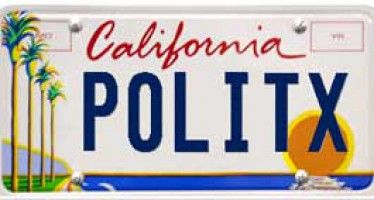The hardball tactics that got Prop. 39 tax hike passed
Dec. 20, 2012
By Chris Reed
In June, California voters rejected a hike on cigarette taxes to fund cancer research. The defeat of Proposition 29 strongly suggested that the general anti-tax beliefs of most of the Golden State electorate remained intact, no matter the lunatics they elected to the Legislature and statewide office.
But in November, voters backed Proposition 30, increasing the sales tax on everyone and income taxes on the wealthy, to the surprise of many pundits. And they also approved Proposition 39, which wiped out a corporate tax loophole in favor of a bizarre and dubious scheme to subsidize green energy projects, which have gone haywire over and over in similar federal subsidy schemes.
We know why Prop. 30 passed: Gov. Jerry Brown and a well-funded TV ad campaign framed it as a referendum on public education by linking its rejection directly to massive school budget cuts. But how did Prop. 39 succeed? By threats to personally demonize the CEOs of the companies most likely to fund opposition. Timm Herdt of the Ventura County Star has the back story:
“It was a story jointly written by a brassy political consultant whose style was forged while fighting off scandals in the Clinton White House, a billionaire Silicon Valley investor with a passion for public policy, and a dogged state senator who waged a three-year crusade to change a tax policy he believed was shortchanging California businesses and taxpayers. …
“The solution, [Democratic consultant Chris] Lehane believed, was ‘to change the value proposition’ for companies considering whether to finance a campaign to defeat Proposition 39.
“Because Sen. Kevin De León, D-Los Angeles, had fought for three years in the Legislature to change the tax formula, he knew what to expect.
“‘The multistate corporations were so effective in their lobbying. They killed every effort,’ De León told me. ‘I knew who the players were.’
“He knew that the most likely opposition to Proposition 39 would come from the out-of-state companies that had most aggressively lobbied against the idea in the Legislature: Chrysler, General Motors, International Paper and Kimberly-Clark.
“Full-page newspaper ads, featuring photographs of the companies’ CEOs, were purchased, asking them not to oppose the measure. De León sent a letter to the CEOs challenging them to a public debate ‘so voters can plainly see how devastating your efforts are to our state.’
“By Sept. 26, only GM and Kimberly-Clark were still holding out. The Proposition 39 campaign threatened to start running TV ads and to ‘unleash a relentless barrage’ of commercials calling out those two companies.
“Because venture capitalist Tom Steyer had deposited $21 million into the Yes on Proposition 39 campaign, potential opponents knew this was not an empty threat. And they knew it would be impossible to wage an opposition campaign on the cheap.
“‘Tom was not going away,’ De León says.
“By Sept. 28, all four companies had promised not to oppose the initiative. And in the end, the opposition campaign was almost nonexistent.”
Politics is not for the weak of heart. These tactics aren’t illegal. But the cause they helped is such a disaster that stories like this are disheartening. If only defenders of taxpayers could figure out ways to play such effective hardball.
Related Articles
Record numbers for govt. employment is no joke
Dec. 7, 2012 By Katy Grimes Did you hear the one about the government hiring record numbers of new employees
Felons near top of Orange County pension bloat
John Seiler: People think of Orange County as a staid place where people make sure government is stingy. Nothing could
Changing CA politics: What’s the biggest potential shift?
The open-primary success of relatively moderate GOP candidates in statewide races has prompted lots of thumbsucker punditry lately. For example,



